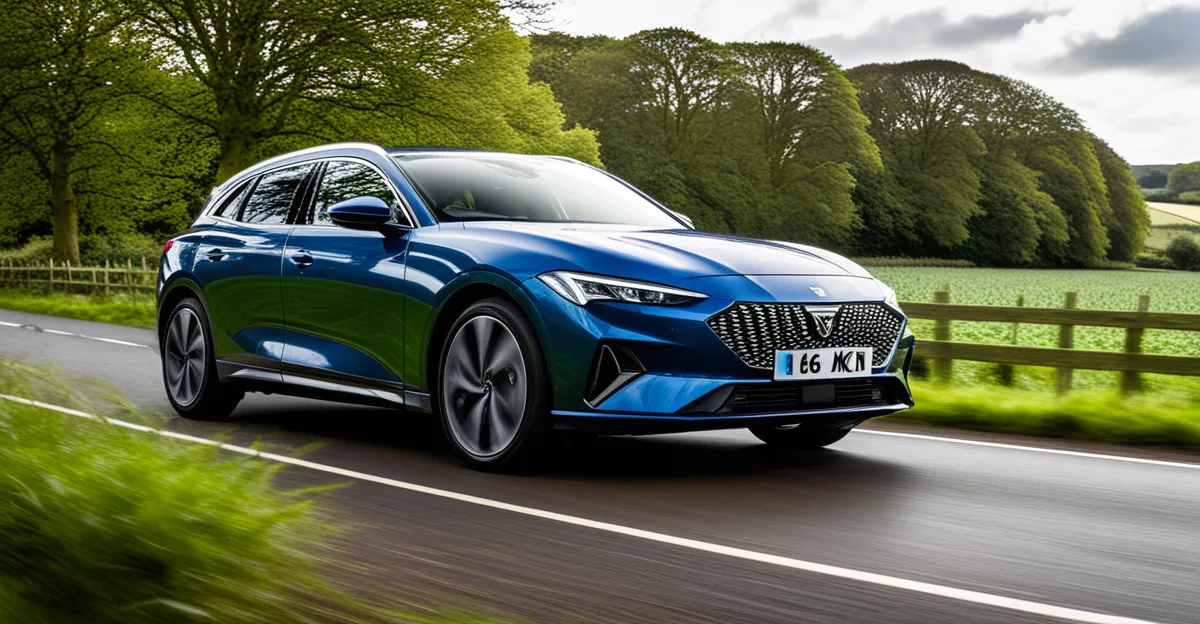Overview of Emerging Automotive Technologies in the UK
The UK automotive industry is experiencing a transformative era, thanks to a surge in automotive innovations. This change is primarily driven by advancements in technology that are set to redefine traditional transportation methods. As the need for sustainability and efficiency becomes more critical, key automotive technologies such as electric vehicles, hydrogen fuel cells, and smart mobility solutions are at the forefront of this evolution.
In the UK, industrial innovation is playing a pivotal role in revolutionising the transportation industry. Innovative approaches to vehicle manufacturing and design are reshaping how vehicles operate and interact with their environment. Technologies such as autonomous driving, connectivity, and shared mobility models are gaining traction, enabling more sustainable and efficient transportation systems.
Additional reading : What role does AI play in UK automotive design innovations?
Current trends point towards an integrated approach where diverse technologies converge to address environmental concerns and improve transport efficiency. The implementation of connected vehicles and infrastructure is creating a more seamless and efficient transportation ecosystem, contributing to reduced emissions and better traffic management. As these UK automotive innovations continue to evolve, they promise not only to enhance transportation efficiency but also to support the country’s commitment to reducing carbon emissions.
Electric Vehicles and Their Impact on Sustainability
Electric vehicles (EVs) are rapidly transforming the UK automotive market, ushering in a new era of zero-emission transport. The rise of electric vehicles is driven by increasing consumer adoption rates, supported by advancements in battery technology and expanding charging infrastructure. In recent years, EVs have become a popular choice for many UK consumers, reflecting a growing shift towards more sustainable transportation options.
Also read : How Are Electric Vehicles Transforming the UK’s Automobile Industry?
The environmental benefits of electric vehicles are substantial. They contribute significantly to reducing carbon emissions, a key goal in the fight against climate change. EVs produce no tailpipe emissions, which directly helps to improve air quality in urban areas. This shift not only benefits the environment but also public health by decreasing pollution-related ailments. Moreover, as the UK increases its reliance on renewable energy sources, the sustainability of EVs continues to improve, further establishing them as a vital component of green transportation.
The UK government plays a pivotal role in the transition towards electric vehicles through various incentives and policy measures. These include financial grants for purchasing EVs, investments in nationwide charging networks, and legislative efforts aimed at phasing out traditional combustion engines by designated future dates. These initiatives not only accelerate the adoption of electric vehicles but also foster innovation and investment in related technologies. Such government support is crucial in achieving the ambitious targets set for zero-emission transport and ensuring a more sustainable future for the UK’s transportation landscape.
Hydrogen Fuel Cells: A Promising Alternative
As the quest for green transportation intensifies, hydrogen fuel cells emerge as a formidable contender in the automotive sector. These cells generate power through a chemical reaction between hydrogen and oxygen, producing only heat and water as byproducts. This positions them as a promising sustainable energy source for vehicles, especially in applications where quick refueling and long-range travel are essential.
While both hydrogen fuel cells and electric vehicles contribute to sustainability efforts, they offer different advantages. EVs currently dominate the market due to established infrastructure and growing consumer familiarity. However, hydrogen fuel cell vehicles (HFCVs) can refuel faster, making them ideal for public transportation and logistics. Additionally, HFCVs boast greater range capabilities, which can address consumer anxieties about electric vehicle battery limitations.
Several case studies in the UK highlight the successful implementation of hydrogen technologies. For instance, the deployment of hydrogen-powered buses in urban areas demonstrates how these vehicles can integrate into existing transportation networks, offering a zero-emission transport solution. Furthermore, projects like these serve as a pilot for future expansion, with valuable lessons enhancing the feasibility and scalability of hydrogen applications. Through continued innovation and investment, hydrogen fuel cells could significantly contribute to the UK’s carbon reduction goals.
Smart Mobility Solutions and Their Role in Sustainable Transportation
In the UK’s rapidly evolving automotive landscape, smart mobility solutions are taking center stage, poised to transform traditional transportation methods into a more efficient and sustainable system. At the heart of these solutions are connected vehicles, which communicate with other vehicles and infrastructure to enhance transportation efficiency. Whether through real-time traffic management or intelligent parking systems, these technologies are pivotal in reducing congestion and emissions.
One of the remarkable facets of smart mobility is its capacity to support sustainable urban planning. By leveraging data from connected vehicles, city planners can make informed decisions aimed at improving public transport routes and optimising urban spaces. This alignment between technology and urban planning not only makes transportation more efficient but also contributes significantly to emissions reduction efforts.
Several initiatives in the UK are already showcasing the benefits of smart mobility. For instance, pilot programs integrating connected vehicles have demonstrated substantial improvements in traffic flow and a decrease in vehicle idling times, directly leading to lower emissions. As these technologies gain wider implementation, they hold the promise of turning cities into environmentally friendly hubs, steering the entire transportation system towards a sustainable future.
Government Support and Policy Framework for Sustainability in Automotive
The UK’s commitment to automotive sustainability is significantly reinforced by robust government policies that champion eco-friendly innovation. These policies are crucial in fostering a regulatory environment conducive to the adoption of sustainable practices within the automotive sector. The UK government actively supports initiatives aimed at reducing carbon emissions, with measures such as financial incentives for purchasing electric vehicles and investments in modern infrastructure.
One significant area of support is the availability of funding and grants directed towards innovative automotive technologies. The government has allocated substantial resources to drive research and development, allowing companies to explore and implement cutting-edge solutions. This financial backing not only propels the transition towards greener technologies but also stimulates economic growth by encouraging industry-wide shifts.
Government policies play a pivotal role in steering the automotive industry towards sustainability. By implementing regulatory frameworks and providing fiscal support, the government ensures that the industry moves beyond traditional models. This alignment between policy and innovation underscores the importance of legislative action in driving systemic change, ultimately positioning the UK as a leader in sustainable transportation.
Case Studies Highlighting Successful Innovations in the UK
In the UK’s quest for sustainable transportation, various automotive case studies illustrate the potential for significant innovation. One noteworthy example is the deployment of hydrogen-powered buses in London. This initiative showcases how hydrogen fuel cells can integrate within urban transit systems, providing an efficient, zero-emission transport alternative.
Another successful innovation involves electric taxis in Nottingham, which demonstrate the effectiveness of electric vehicles in urban settings. These taxis have shown reductions in both emissions and operational costs, reinforcing the practicality of EVs in public transport environments.
Furthermore, connected vehicles participating in smart traffic management trials have revealed substantial improvements in reducing congestion and emissions across multiple cities. Such trials underscore the potential of smart mobility solutions to transform urban landscapes sustainably.
These innovation success stories provide valuable insights for future developments. They highlight the necessity of continued investment in green transportation technologies and serve as models for scaling solutions nationwide. With these case studies as guiding examples, the UK’s automotive sector is well-positioned to lead in sustainability and reduce its carbon footprint effectively.
Future Trends and Outlook for Automotive Sustainability in the UK
The future of automotive technologies in the UK is poised for substantial transformation by the year 2030, as sustainability becomes increasingly central to innovation in transportation. Emerging trends indicate a greater emphasis on zero-emission transport and green transportation solutions driven by technological advancements and environmental imperatives. The UK automotive industry is set to witness more widespread integration of smart mobility innovations and hydrogen fuel cells, complementing the existing rise of electric vehicles.
Consumer behavior and market demand play a pivotal role in shaping these future automotive trends. As awareness of environmental concerns grows, consumers are expected to continue favouring sustainable vehicle options, thereby influencing manufacturers to enhance EV sustainability and expand charging infrastructure. Moreover, digitalization and data-driven approaches in connected vehicles will further enhance transportation efficiency and urban planning, cutting down on emissions and optimizing traffic management systemically.
In terms of long-term implications, these sustainable automotive solutions promise to significantly impact the environment and society. Reduced carbon footprints and improved air quality will not only lead to healthier urban environments but also propel the UK towards meeting its carbon neutrality goals. Furthermore, as the country continues to innovate, the transportation industry will contribute to economic growth through job creation in new technology sectors and government policies will continue to provide necessary support for this transition.








